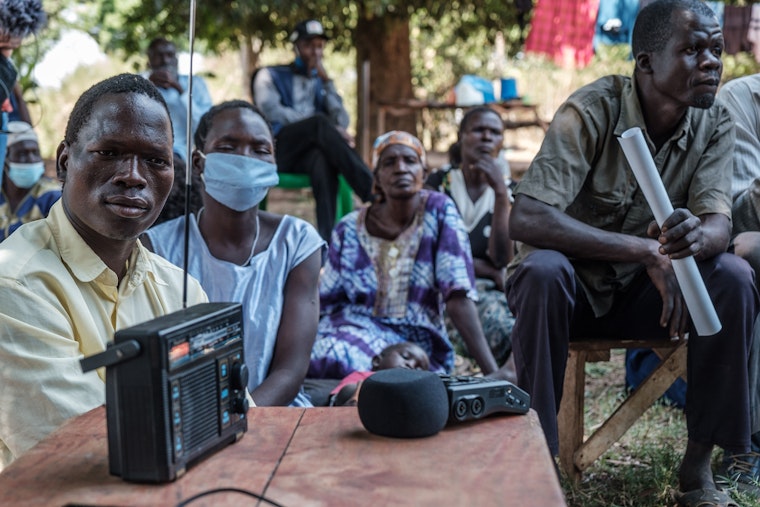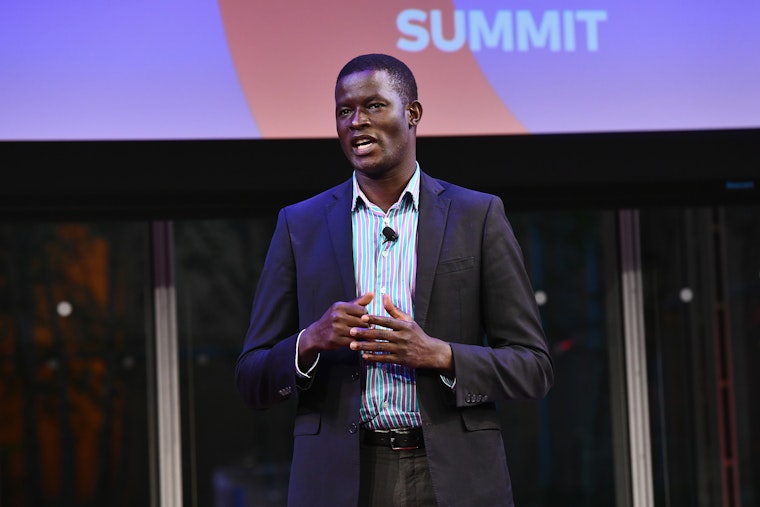Why the End of U.S. Sanctions on the International Criminal Court Matters to My Community
By Victor Ochen

In 2004, after decades of deadly war between the government of Uganda and the rebels of the Lord’s Resistance Army, my staff and I began bicycling between camps for internally displaced people in the northern part of my country, to ask survivors of the conflict to testify before the International Criminal Court (ICC).
Because the court had been invited into the country by our government, many people—who for so long had felt neglected and abandoned by our leaders and by the international community—feared the ICC investigation of atrocities would be biased against the rebels. A large part of my work was convincing those war-weary people that the court could be trusted, that it mattered, and, more importantly, that they mattered, too.
It took years of sacrifice and dedication to build local support and trust for the ICC, a treaty-based tribunal that prosecutes war crimes, genocide, and crimes against humanity in countries that have agreed to its jurisdiction. At the first meeting the court held in my community, most people walked out, fearing reprisal from the LRA. But I volunteered to assist the court without hesitation.
My organization, the African Youth Initiative Network (AYINET)—which works to rehabilitate war survivors and train at-risk youth for leadership roles—was the first to openly promote the ICC in northern Uganda. We faced death threats for doing so. I was scared. But the time had come to stand up for peace and justice, no matter the outcome.
In February, the ICC returned its guilty verdict against Dominic Ongwen, a senior commander in the LRA charged with 70 counts, including attacks on displaced peoples’ camps, sexual- and gender-based violence, and the use of children in hostilities. The verdict came more than 16 years after the court issued an arrest warrant for Ongwen and six years after his capture, but it wouldn’t have come at all if not for key support from the United States, among other countries.
I can’t say that I am happy for the verdict—Ongwen caused too much pain and destruction for happiness to be part of the equation. But I can say that his acquittal would have been my greatest agony.

So it is perhaps not surprising that I feel a profound sense of relief to hear that the United States under President Biden has rescinded the anti-ICC sanctions put in place by the Trump Administration last year. In addition to measures against two top ICC officials, the executive order move threatened to sanction any “foreign person” found to have assisted them.The order ostensibly protects the interests of the U.S. and its ally Israel from open ICC investigations respectively in Palestine and Afghanistan.
By rescinding the sanctions, I believe President Biden is acting in line with the promises made during his election campaign to heal his own nation and its relationships with the world—a message that resonated with my people and our prayers.
Why does the ICC mean so much? Consider my own story. I was born and grew up in northern Uganda. My own brother and cousin were abducted from the Abia camp by Ongwen’s rebel group in 2003, and they have never been seen again.
In my personal quest for peace, I was at my weakest after my brother was abducted by the rebels. I was 22 years old, had lived in internally displaced peoples’ camps for my entire life, and wondered if the future actually existed for people like me. All I could see was the past. My efforts to get an education were continually thwarted. I had lost countless friends and families to a war that had no end. The LRA was guilty but so was our government, which had failed to stop it, and so was the international community, which, as far as I could tell, thought we were unworthy of saving. I was angry and, like many others, considered taking up the gun. The ICC offered a constructive alternative to me, and to many others—the alternative of seeking justice through peaceful means, rather than continuing the cycles of violence.
By rescinding sanctions and re-engaging with the court, the Biden administration is reinforcing a clear message of hope and peace—to the world; to the countless families in Uganda who have lost loved ones in the decades-long war with the LRA; and to survivors who continue to choose peace over violence all over the world. Because that is the only way forward.
Victor Ochen is founder and executive director of the African Youth Initiative Network. In 2015, he became the first Ugandan ever to be nominated for a Nobel Peace Prize.